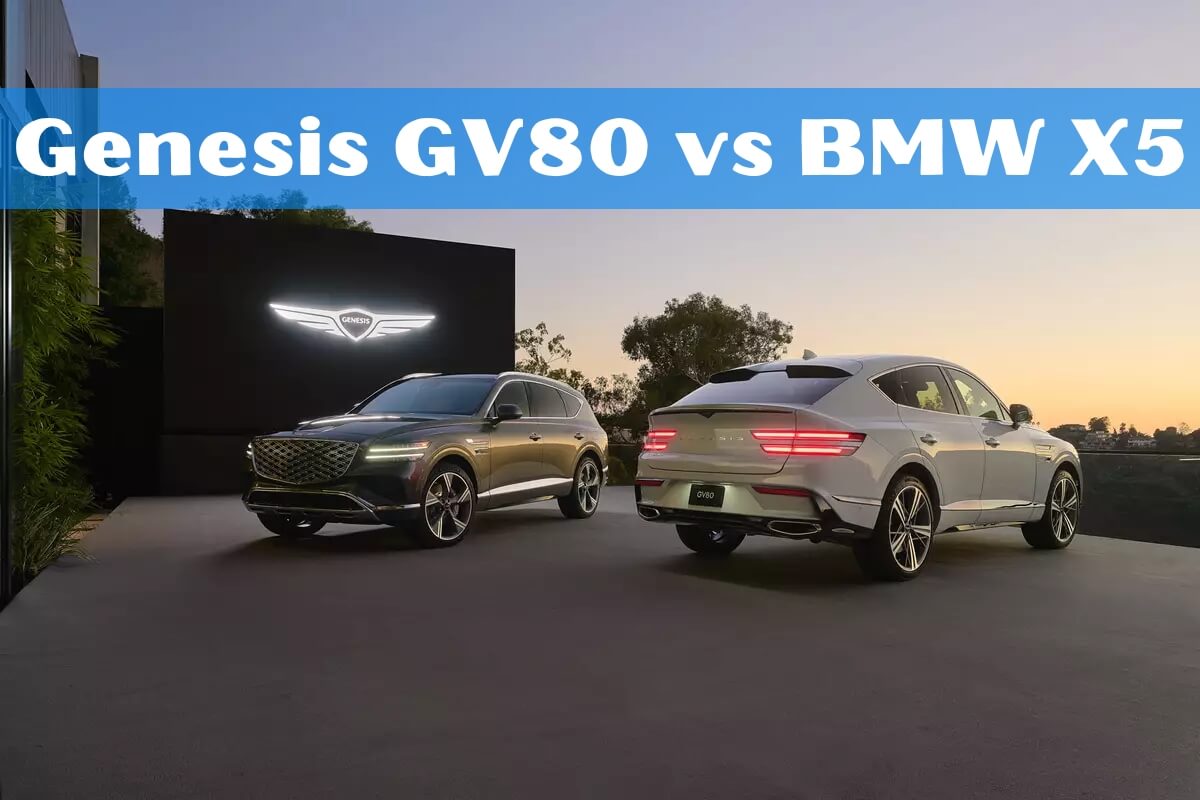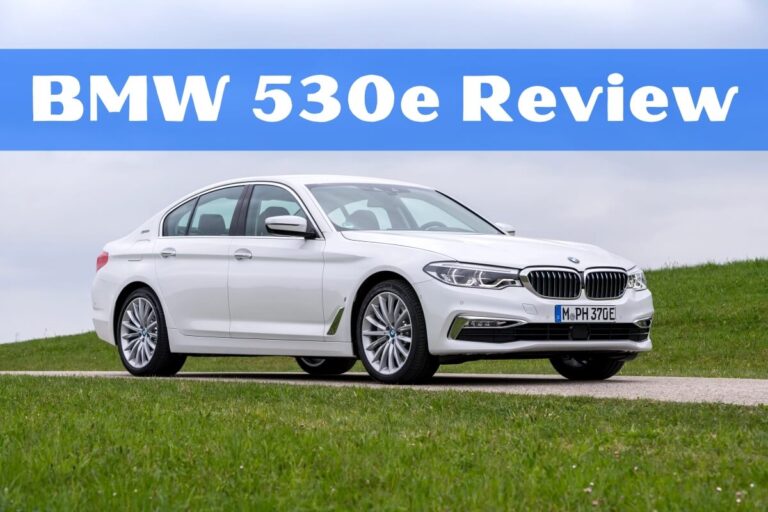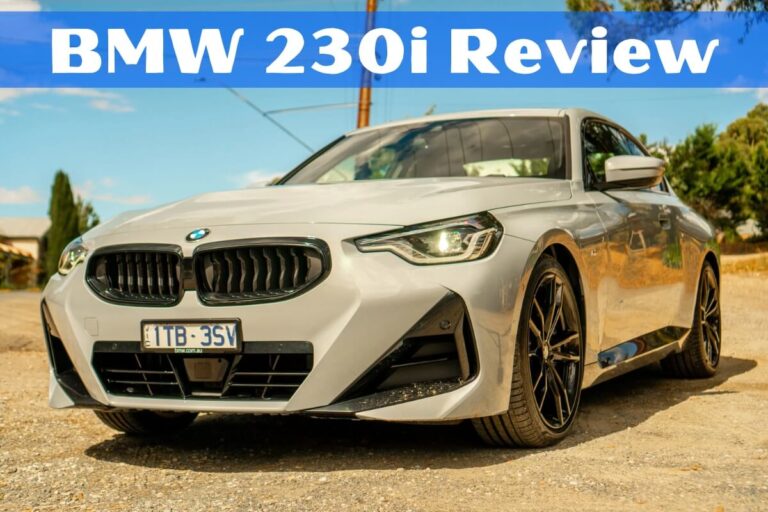Genesis GV80 vs BMW X5: Luxury SUV Comparison Guide

Are you in the market for a premium midsize SUV? Two standout options are the Genesis GV80 and BMW X5. This guide dives deep to compare these luxury models across pricing, performance, interior amenities, tech features and more to help you decide which one is the better choice.
The luxury SUV segment is highly competitive, with both established premium brands and newcomers vying for attention. Two vehicles that have captured the interest of buyers are the Genesis GV80 and BMW X5. Let’s analyze how they stack up against each other across various parameters.
Pricing and Value: Genesis GV80 vs BMW X5
One of the key factors influencing a luxury vehicle purchase is pricing and overall value proposition. The Genesis GV80 clearly has an advantage here over the BMW X5.
The base GV80 2.5T AWD trim starts at around $59,000, while the top-spec 3.5T AWD Advanced+ peaks at $82,000. In contrast, the BMW X5 range begins at $66,875 for the entry sDrive40i, with the ultra-high performance M Competition model topping out at over $124,000.
Even when you compare higher trims with similar engine options and feature sets, the Genesis undercuts the BMW’s pricing by a significant margin, making it better value for money.
Engine Choices and Performance Benchmarks
When it comes to performance credentials, both the GV80 and X5 offer punchy engine options catering to different buyer needs.
The Genesis GV80 comes standard with a 2.5L turbocharged 4-cylinder producing 300 hp and 311 lb-ft of torque. A step up is the 3.5L twin-turbo V6 with 375 hp and 391 lb-ft on tap. All engines are mated to an 8-speed automatic transmission.
BMW offers more variety, with a 3.0L turbo inline-6 (335 hp/331 lb-ft) in the sDrive40i and xDrive40i trims. The upper range consists of the xDrive50i’s turbocharged 4.4L V8 (523 hp/553 lb-ft) and the electrified xDrive50e plug-in hybrid’s 483 hp output. The M60i and M Competition use the same V8 tuned to 600+ horsepower levels.
In terms of outright acceleration, BMW holds an edge – the X5 xDrive50i can hit 0-60 mph in around 4.1 seconds, while the GV80 3.5T takes 5.2 seconds. However, for most daily driving needs, the Genesis V6 offers ample thrust while sipping less fuel than BMW’s V8 options.
Interior Roominess, Ambience and Tech
Premium SUV buyers expect a well-appointed, sophisticated cabin with ample space for passengers and cargo. Both the GV80 and X5 deliver on this front, though they follow slightly different interior design philosophies.
The Genesis GV80’s interior prioritizes comfort, swathing occupants in upscale leather upholstery and wood trim accents that create a serene ambience. There’s generous headroom and legroom, even for taller occupants in the second row. Some trims offer a cramped third row as an option.
Cargo capacity is a GV80 strong suit, with up to 84 cubic feet of space with the rear seats folded. This beats out the BMW X5’s 72.3 cubic feet maximum.
On the technology front, the highlight is a massive 14.5-inch touchscreen infotainment system with user-friendly controls. The digital gauge cluster uses eye-tracking to provide a 3D rendered effect. Other niceties include a head-up display, surround-view cameras, remote start, and a premium audio system.
BMW interiors are traditionally more driver-focused and overtly sporty in design. High-grade materials like genuine wood and brushed aluminum accents create an upscale, minimalist vibe. The iconic iDrive interface with gesture control returns, accompanied by digital displays.
Passenger space is slightly more cramped, especially in the second row compared to the GV80. However, the iconic X5 makes up for it with a more user-friendly cargo area design and extra cubby storage.
Both models come comprehensively equipped with the latest active safety technologies like automatic emergency braking, blind-spot monitoring, rear cross-traffic alerts and more.
Fuel Efficiency: Genesis GV80 vs BMW X5
Fuel costs are always a consideration for SUV owners. Here’s how the Genesis GV80 and BMW X5 compare in terms of efficiency:
The base GV80 2.5T AWD returns an EPA-estimated 22 mpg city and 25 mpg highway. With the 3.5L twin-turbo V6, the ratings dip to 20 mpg city and 24 highway.
Meanwhile, the BMW X5 sDrive40i manages 23 mpg city and 29 highway as a rear-wheel-drive model. The xDrive40i AWD drops slightly to 23 mpg city and 27 highway. BMW’s V8 and performance variants see the number around 17-20 mpg combined.
If maximum fuel efficiency is a priority, the plug-in hybrid BMW X5 xDrive45e could be worth a look with its 23 miles of electric-only range and 49 MPG-e rating.
Driving Dynamics and Handling
When it comes to the actual driving experience and handling characteristics, BMW has traditionally had an advantage thanks to its rear-wheel-drive architecture and performance-tuned dynamics.
The new Genesis GV80 has closed that gap considerably however. Its rear-biased all-wheel-drive system and available road-scanning adaptive suspension endow it with excellent dynamics and composure both on smooth highways and twisty backroads.
That said, the BMW X5 stays true to its “Ultimate Driving Machine” tagline. With a stiffer chassis, perfectly weighted steering feel and intelligent xDrive all-wheel drive, it inspires confidence no matter the road conditions. The X5 stays remarkably flat through tight corners and responds eagerly to driver inputs.
For those seeking maximum engagement, BMW’s go-fast M Performance variants with their muscular powertrains and tuning transform the X5 into quite the potent high-performance SUV.
While Genesis might lack such an ultra-high performance variant yet, the GV80 strikes an impressive balance between comfort and handling prowess. It’s a greatvehicle for daily driving, with just enough sportiness and dynamism to keep things interesting when desired.
Which Luxury SUV Reigns Supreme?
So which luxury midsize SUV should you pick – the Genesis GV80 or BMW X5? As with most vehicle buying decisions, the answer boils down to your specific needs and priorities.
If you want the utmost in brand prestige and uncompromising driving dynamics along with scintillating acceleration from powerful engines, the BMW X5 is the way to go. From its chiseled driving dynamics to whisper-quiet cabin, it exemplifies what a premium performance crossover should be.
However, the Genesis GV80 undercuts the X5 substantially on pricing while delivering a very similar level of luxury and an outstanding all-round package. It too offers strong performance and handling, albeit with more of a touring-oriented character. The generously-sized cabin and high-end materials are executed flawlessly.
For typical affluent SUV buyers, the value proposition, spacious and comfortable interior, leading safety tech and strong brand warranty coverage of the Genesis GV80 present a highly compelling case. It could even sway some buyers away from the established German luxury marques.
If money is no object and you want the most powerful, performance-focused SUV in this segment, higher trims of the X5 like the M60i and M Competition would be the ones to go for.
Let’s Wind UP: Genesis GV80 vs BMW X5 – The Final Verdict
Luxury SUV shoppers have two excellent choices on their hands with the Genesis GV80 and BMW X5. Both deliver premium cabin experiences, strong performance and the latest tech features expected of vehicles in this segment.
While the X5 is the more expensive proposition, it brings BMW’s impeccable driving dynamics and brand cachet to the table. The Genesis GV80 offers similar luxury and power but at lower price points, making it outstanding value if the badge doesn’t matter as much.






